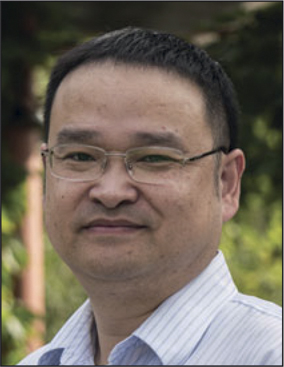
Xiaobo Yin is an assistant professor and the Bruce S. Anderson Faculty Fellow in the College of Engineering and Applied Science at the University of Colorado Boulder. He received his PhD degree from Stanford University in 2008. He was a senior scientist at the NSEC Center at the University of California, Berkeley, and a research assistant professor at Stanford University before he joined the faculty of the University of Colorado Boulder in 2013. He received the DARPA Young Faculty Award in 2015. His current research focuses on controlling light–matter interaction at the nanoscale and developing new optical materials for a broad range of applications, from brain imaging to energy harvesting and thermal management. His work addresses both the fundamentals of nano-optics and the technological hurdles of deploying nanomaterials and metamaterials for real-world applications through scalable and sustainable nanomanufacturing.
In his presentation, Yin will discuss understanding size effects in micro- and nanostructures and how this offers a significant new opportunity to design structured materials with unprecedented properties. Tremendous progress has been made recently in a broad range of technical areas, with examples such as well-tailored mechanical structures that are extremely strong but lightweight and optical metamaterials that negatively refract and cloak. However, there is still a tremendous gap between proof-of-principle laboratory demonstrations and real-world applications where large quantities of well-designed micro-/nanostructures are required. Innovative designs and radical improvement in manufacturing technologies are both necessary. Yin will first introduce the group’s recent advances in controlling light–matter interactions using nanomaterials and subwavelength optical structures, and then discuss how the insights on structure–function relationships could enable the scalable manufacturing of optical metamaterials for large-scale applications, such as passive radiative cooling.


